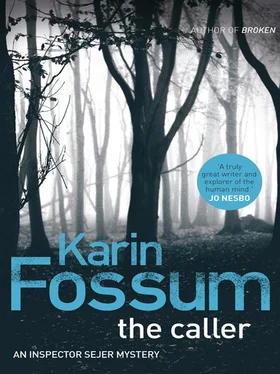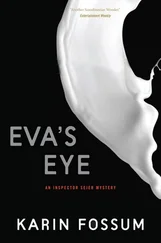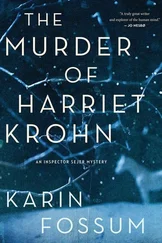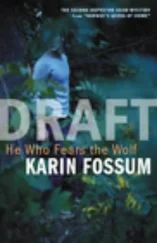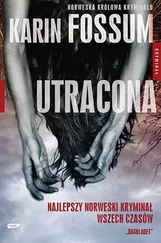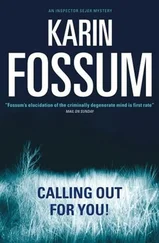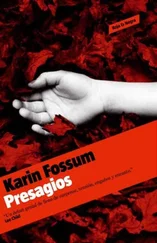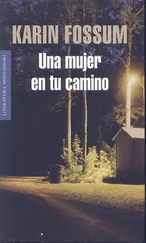‘Frogface,’ she called out.
Her laughter crackled like ice cubes rolling across a table.
He was so furious that the heat rose in his cheeks.
‘Stupid little girl,’ he shouted. ‘You’ll get it! Tonight!’
He remembered it was Thursday. That meant the band would practise at the Hauger School gymnasium, and Else Meiner would blow her trumpet until her cheeks puffed out. I’ll use the army knife, he thought.
I’ll puncture both your lungs.
Then there will be no more sounds from your trumpet.
Later he got to thinking about the Hauger School Band. That Else Meiner would leave on her bicycle, her instrument stowed in a little case over the back wheel. With others she would sit in the gymnasium for two hours, blowing her trumpet. Or an hour and a half. He didn’t know how long band practice would last, but he planned to watch through the window. Before he left, he scavenged in his chest of drawers — looking for a little surprise for Else Meiner. He didn’t want to be unprepared. Then he slipped his hand into Butch’s cage and patted him gently on the back.
‘No country for old men,’ he whispered.
He went outside.
It was late summer, and all the vegetation had begun to dry up. There was no colour or freshness, none of nature’s optimism, none of its strength. It was as if someone, a spirit or a giant, had swept through the entire Askeland housing estate and left its considerable mark. Don’t you rise again. It’s getting cold now, and dark. Johnny Beskow looked at each house as he passed, as was his routine. You could buy heroin at Askeland; twice he’d been stopped and offered some. No thanks, he’d said with a superior smile. He put enormous stock in being clear-headed, and he was agile and fast and sharp. The addicts who hung around Askeland reminded him of sleepwalkers.
He stopped when he neared Hauger School, hitting the brakes and quickly surveying the area. The bike shed was crammed with bicycles. A few cars sat in the car park. A rope slapped against the flagpole like a whip. He heard a drum, drumsticks pounding steadily against the tight skin, in an even, definite rhythm. He knew that it was the bass drum, the heartbeat of the march. The band had already started, with percussion and horns. A piccolo whined shrilly above all else. Because he didn’t want Else Meiner to hear him, he pushed the moped the final stretch towards the bike shed; you never knew with her, she was awfully sharp. When the moped was parked, he plodded about in the playground, glancing around. Hopscotch patterns, both flyer and niner variations, were painted directly on the black asphalt. Though he didn’t have a marker, he couldn’t resist the urge to hop through the patterns. I don’t weigh much, he thought, as he hopped, and I’m limber. I’m one hell of a jumping troll. His light gymnastics made his heart race; blood raced through his thin body.
He sized up the playground. Straight ahead, behind a red-and-white metal barrier, he saw a bike path; he’d walked that way many times before he’d got his moped. Narrow and paved, it was called the Love Trail. Else Meiner had also come that way, he was quite certain, for she lived at Bjørnstad. And when she went home to Rolandsgata, after band practice, she would again ride that trail. On the blue Nakamura bicycle. At any rate, this is what he was counting on to carry out his vengeance, which he’d plotted so carefully over the past few hateful hours of the afternoon. Energised by these thoughts, he began walking with urgent steps towards the barrier. It would be easy to push the moped past it. He could wait for her there on the trail, hidden behind some bushes — because he noticed they were thick, good hiding places. Now his heart was beating even faster. He was filled with this honey-sweet thing called revenge. For a while he stood near the barrier and considered, glanced right to left, studied the dry, dense vegetation. Then he walked back to the school building. Sneaked down to the basement window and peeked into the gymnasium. The conductor was standing in the middle of the room energetically waving the white baton, his entire body pushing the band forward in the march: pointed elbows, a bend in the knees, eager jerks with his bearded chin. On the left side of the gym were the woodwind players. One of the clarinets had a squeak to it. The percussionists were in the back. And there, in the front right, sat the brass players, Else Meiner and her trumpet among them. Her cheeks were puffed out, exactly as he’d imagined. But she could really play; she was the only one who played pure notes, the only one who kept the rhythm.
Johnny sank to the asphalt, his back against the brick wall by the window, while the band worked its way through a number of marches. Mostly it was the bass drum that interested him. The drumsticks beat with precision and tenacity, keeping the others in rhythm, getting them back on track, so to speak, because it was undeniable they were playing too fast. With regular intervals they stopped, and there followed a sharp rapping sound — the conductor smacking his baton against his music stand. It meant that he wanted to make a change. When the band had played for an hour, it suddenly grew quiet in the gym. Johnny peered cautiously through the window, and he realised it was break time. They had put their instruments aside, and they were on the way up. The boys would probably smoke on the sly, and the girls would probably hop through the flyer and niner, maybe chew some gum while they had the chance. He scrambled from the asphalt and rushed behind the corner of the school building, where he watched them pile out. Else Meiner was wearing jeans and a light blue jacket, and she was wearing it backwards — the buttons, he noticed, were on her back. Miss Contrary, then. But he already knew that — that she was bold and different. She ganged up with two other girls; it looked as though they shared some sweets. The girls’ voices rose through the air, clear as a bell. He squeezed against the wall and kept them under surveillance, made a note of their gestures, the interaction between them. The Meiner girl was the leader, the one the others listened to.
The break lasted fifteen minutes. At once they ran back into the building, and the playground was empty. When he saw they had returned to their seats in the gymnasium, among the wall bars and gym mats, he slipped into the ground-floor corridor. He continued to hear Else Meiner’s trumpet. On the wall to the right was a noticeboard, and he walked over to see what it said. One notice told him, as he’d long known, that Hauger School Band practised every Thursday at six. But there were other activities during the week in the old, dilapidated school building. Aerobics for beginners and advanced, children’s playtime on Tuesdays, chess club each Wednesday at seven, football on Mondays, and a course on cooking and needlecraft. What a crazy lot of things people do, Johnny Beskow thought. For a few minutes he wandered the corridor. Slurped a little water from the fountain against the wall, looked at some pictures. Searched for Else Meiner, and finally found her in a photo from some kind of theatre production, The Living Forest . Dressed like a pine, she wore green flannel, but the pointy chin gave her away.
Suddenly a man in a green nylon jacket walked through a door.
‘Are you looking for someone?’
It was the caretaker. Johnny ran off without responding, shoved the doors open and scurried across the playground as fast as lightning. He got his moped from the bike shed, pushed it past the metal barrier and continued on to the paved path. He stopped to recover and catch his breath. The band would be practising until eight. They would chat for a bit when it was over, putting their instruments in their cases, walking upstairs and out of the building, getting on their bikes and riding away. A quarter past, he thought, that’s when she’ll come this way. On the blue bicycle. As he looked around for a good hiding place, he walked slowly along the Love Trail. There would have to be enough bushes to hide both him and his moped. And when the deed was carried out, he would have to find cover until she had gone. As he walked he was struck by a stupid thought which flushed his cheeks up to his hairline and down to his throat, made him so despondent he had to pause. He leaned over his moped, blushing from the heat and his embarrassment.
Читать дальше
